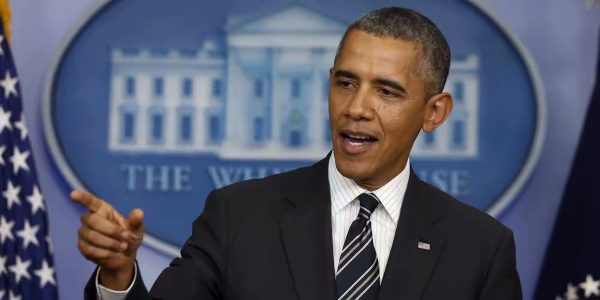The administration of President Barack Obama did not draft the Friday’s UN Security Council Resolution against Israel, the U.S. Department of State has said.
Deputy Spokesperson of the Department, Mr. Mark Toner, stated this during a daily Press Briefing at the State Department following claims by Israeli’s Prime Minister Benjamin Netanyahu.
“We’ve obviously seen the same reports, an amalgamation of different allegations that somehow this was U.S.-driven and precooked.
“What I’ll say is that we reject the notion that the United States was the driving force behind this resolution. That’s just not true.
“The United States did not draft this resolution, nor did it put it forward. It was drafted and initially introduced, as we all know, by Egypt, in coordination with the Palestinians and others.
“It was clear that the Egyptians and the Palestinians would insist on bringing this resolution to a vote and that every other country on the council would in fact, support it.
“We made clear to others, including those on the Security Council that further changes were needed to make the text more balanced.
“And that’s a standard practice on – with regard to resolutions at the Security Council. So there’s nothing new to this,” Toner said.
He said that the President would make the final decision and that he would have to review the final text of the resolution before making his final decision.
“So the idea that this was, again, precooked or that we had agreed upon the text weeks in advance is just not accurate.”
According to him, as the draft resolution was circulated, U.S. said to those on the Security Council what further changes were needed to make the text more balanced.
“And in fact, we ended up abstaining because we didn’t feel it was balanced enough in the sense of it didn’t hit hard enough on the incitement-to-violence side of the coin.”
He said U.S. always reserved the right with any text that was put forward, drafted and put forward, to veto it or to not take action or abstain, adding, that was what it ended up doing.
Toner, however, regretted the allegations implying that the resolution was an orchestrated action by the U.S. to pass a resolution that was negative about settlement activity in Israel.
“The fact is that that’s just not the case. Of course, we would always provide, when the final text was going up for a vote, our opinion on where the red lines were.
“But I think this is all a little bit of a sideshow, to be honest, that this was a resolution that we could not in good conscience veto because it condemns violence, it condemned incitement.
“It reiterates what has long been the overwhelming consensus international view on settlements, and it calls for the parties to take constructive steps to advance a two-state solution on the ground.
“There was nothing in there that would prompt us to veto that type of resolution,” he said.
He expressed the hope that the resolution would serve as a wakeup call, as a call to action, as an attempt to alert both Israel and Palestinian that their actions with regards to settlement activity were detriment to moving forward toward a two-state solution.
According to him, the fact that U.S. has a relationship with Israel that is so strong and so close meant that sometimes U.S. needs to be able to tell Israel difficult things.
“And through our abstention on this resolution, we were conveying our concern about Israel’s future.
“We want to see Israel succeed and prosper as a Jewish and democratic state. And we believe that if the present settlement activity is allowed to continue and intensify, it will render the possibility of a two-state solution.
“The two-state solution is what we all agree as the ultimate goal here, as impossibility; and that was part of the message that we hope was conveyed.”
“I don’t have a particular readout for that meeting. Obviously, you can guess the topic. Look, I don’t want to overstate Israel’s reaction.
“I think that no one – and certainly not

